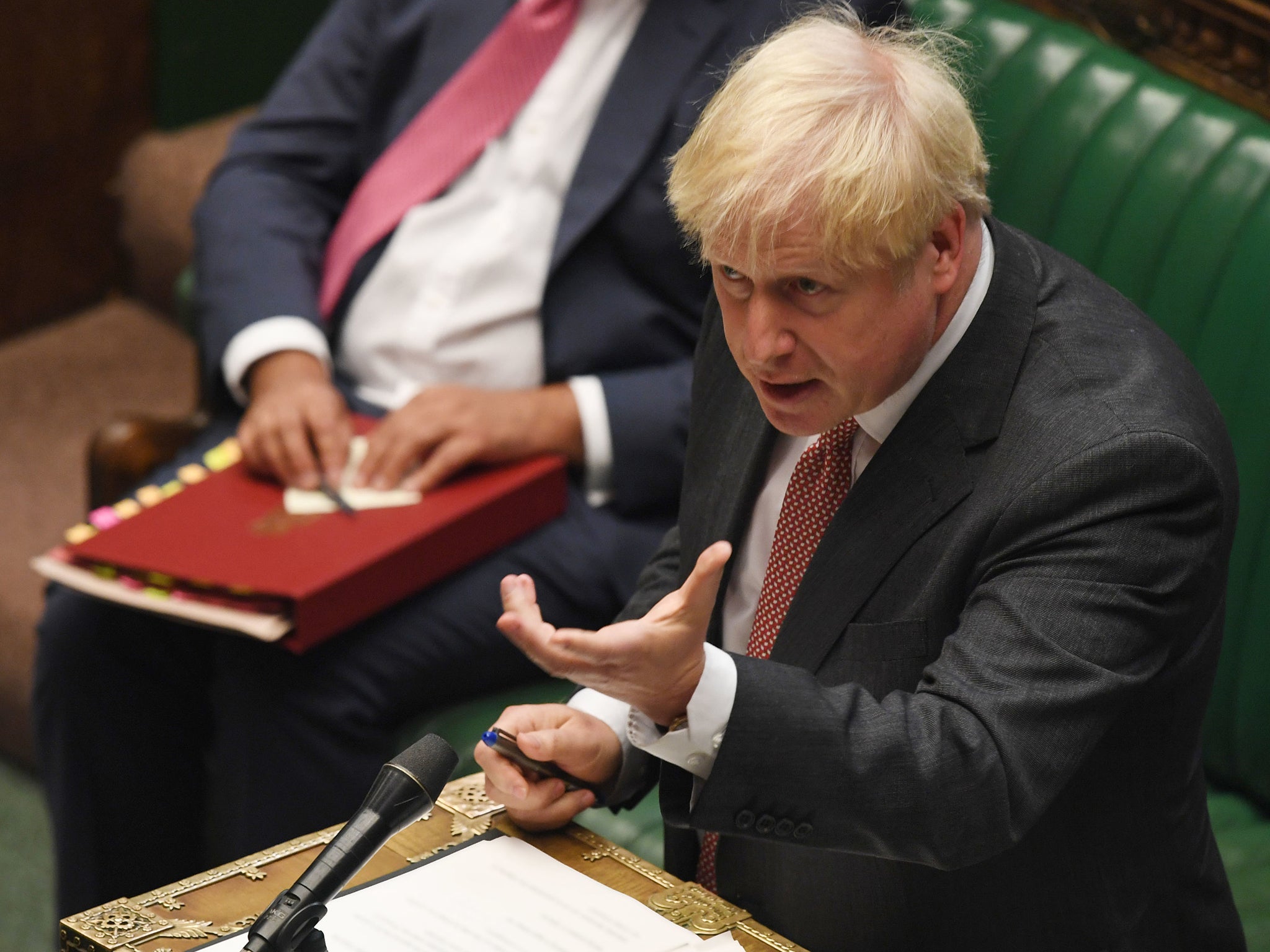How worried should Boris Johnson be about his party’s Brexit rebels?
The prime minister easily survived the first vote on his treaty-breaking UK Internal Market Bill, but it faces stiffer tests to come, writes John Rentoul


Despite dire warnings about breaking international law, the government won the first vote on the UK internal market bill on Monday night by a comfortable majority of 77. Only two Conservative MPs – Sir Roger Gale and Andrew Percy – voted against the bill, while more than 20 abstained. The Tory rebellion was somewhat offset by the support for the bill from the Democratic Unionist Party, which backs Brexit but opposes the withdrawal agreement.
The most difficult moment in the House of Commons will probably come on Tuesday next week, when there will be votes on amendments to take out the clause of the bill that gives ministers the power to override the withdrawal agreement, or to make it subject to a further vote of parliament. At that point, several of the abstainers might vote against the government, and other rebels who voted for the principle of the bill will join them.
Damian Green, who was Theresa May’s deputy, voted for the bill in principle on Monday, but has said he will vote for an amendment that would require another vote, which has already been tabled by Sir Robert Neill, one of the abstainers. Boris Johnson tried to bamboozle the rebels by suggesting that, “if the powers were ever needed, ministers would return to this house with a statutory instrument on which a vote … would be held” – but he didn’t say that such a vote would come after, rather than before, the powers were invoked.
There are discussions being held with the rebels, and there is some confusion about whether Brandon Lewis, the Northern Ireland secretary, spoke for the government when he admitted the bill itself does “break international law”. This is mostly sophistry – I have heard one Westminster source say the bill is “the gun, not the bullets”.
But the prime minister almost certainly has the numbers to get the bill through the Commons in any case: a margin of 77 votes is a lot to overturn.
Then the bill goes to the House of Lords, where the government has no majority. That means two things for certain. One is that the government cannot impose a timetable on the upper house’s deliberations. So we could be in for a long struggle. The other is that the Lords is bound to amend the bill and send it back to the Commons in the first instance. It is full of Remainer lawyers who are horrified at the idea of renouncing an international treaty, especially if it is to further a “hard” Brexit.
The question is what happens after the Commons reverses the Lords amendments and sends the bill back to the upper house, a procedure known as ping-pong. Would the Lords insist on its right to delay the legislation for a year – which would take it beyond 1 January 2021, when new trade arrangements with the EU have to come into force? Or will peers bow to the will of the democratically elected lower house?
For many peers, this means a clash of two fundamental principles. They do not like to stand in the way of the elected chamber; but their reverence for international law might be enough to overcome that reluctance.
While this dilemma is being resolved, however, the negotiations between the UK and the EU will go on. If the prime minister is engaged in theatrical brinkpersonship, he needs the bill’s progress in the Lords to remain undecided in order to convince the EU negotiators that he really is prepared not just to walk away from the talks but to tear up the withdrawal agreement as he does so.
If that reading is correct, Johnson does not actually want to get the bill through, or risk it being defeated, but to keep the threat of it hanging over the negotiations. It is a high-stakes tactic, and it is quite impossible to predict how it will work out.




Join our commenting forum
Join thought-provoking conversations, follow other Independent readers and see their replies
Comments